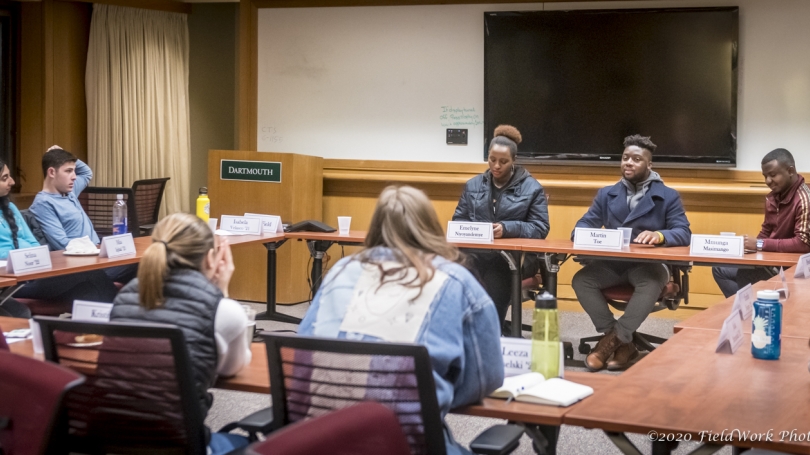
- Public Policy
- Leadership
- Funding
- News & Events
- About the Center
Back to Top Nav
Back to Top Nav
Back to Top Nav
Back to Top Nav
For our sixth RGLP session, Becky Field, who photographs cultural diversity in New Hampshire, came to show us her photo projects and speak to us about immigration to New Hampshire. We were joined by three very special guests: Martin Toe, Mmunga Masimango, and Emelyne Niyoyandemye. They were African immigrants who had arrived in the United States either as refugees or to seek asylum.
While Becky’s photographs were beautiful and joyful, the stories of these three immigrants were full of difficulty and strife. I would like to highlight some of the themes of migration which Martin, Mmunga, and Emelyne divulged in their powerful stories.
Martin’s story was about boundaries. In his home country, his parents had met at the boundary of war. His journey was across the boundary of state lines, as he was pushed from refugee camp to refugee camp. And when he finally, unbelievably, was pulled from the lottery to come to the U.S., he faced the boundaries of racism and expectations.
Mmunga spoke about choice. In a situation where he had to flee, he was limited by mobility, by money, and by time. Existence seemed to stretch out in front of him, full of uncertainty. There was no autonomy, no independence while he waited for seven years in a refugee camp not knowing that at the end he would also be delegated to the United States, no less New Hampshire.
What stood out to me about Emelyne’s story was isolation. Before and after she made it to the United States, Emelyne lived in limbo between existing and disappearing. In order to protect herself and her family she had to flee and hide, selectively isolating herself albeit to survive. In the States, she felt the isolation of being behind a daunting language barrier and not having the support or company which every human being desires.
I was amazed by the trials that all three of them had overcome and surprised by the way they spoke of their journeys to the United States. To them, ending up in the United States was neither a choice nor ideal. Thankfully, their communities were (for the most part) welcoming and they have all adjusted to their new lives and now enjoy some of the opportunities which my family immigrated to the U.S. to take too, like education. This experience stressed to me the importance of evaluating the narratives spun in the media and the policies drafted in the government. How often are these two sources of information supporting the same agenda and how often does that conflict with the realities of the human hearts and faces which we can welcome to our communities?